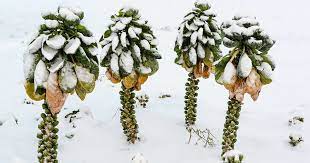Last Updated on August 16, 2023 by Real Men Sow
The end of the season is always a bittersweet time. You are excited to start looking forward to all of the sprouts that will be coming in, but also sad that you won’t be eating as many fresh veggies for a while. When you’re feeling upset, try to grow some sprouts in the winter. They can help you feel better.
When sprouting seeds produce plenty of nutrients that will ensure that the seedling plants have the best chance for survival. When you take a sprouting seedling’s life, it is short-lived. However, his (reluctantly accepted) gift will contain a wealth of vitamins and minerals that will keep you healthy.
How to Grow Sprouts in the Winter
Alfalfa and radish are good seeds to start. It is easy to grow sprouts in a large glass jar. To drain the water out of the jar, use a porous cloth such as muslin.
- Add 2-3 tablespoons to the jar. It will vary depending on how big the jar is, but the photo to the right should give an idea of what to do (approximately 1/4).
- Half of the jar should be filled with water. Leave the seeds to soak in the water for 10 minutes. For larger seeds, such as beans or peas, soak them for at least 4 hours.
- Once the water has drained, secure the muslin to your lid. To germinate, place the jar in direct sunlight.
- Repeat the previous steps twice daily, but make sure to turn the jar upside down so that the excess water drains out. The seeds should be kept moist, but not in water.
- The sprouts should be ready after 3-5 days. You can then leave the jar out in the sunlight for one day. This will help to make your sprouts greener.
General Care Guide
Place sprouts in direct sunlight for half a day to increase vitamin C. They will turn sunlight into vitamins, and they will start to green up. They should be rinsed occasionally if they are exposed to direct sunlight. To slow down their growth and prolong their freshness, they can be kept in the refrigerator once they are grown.

